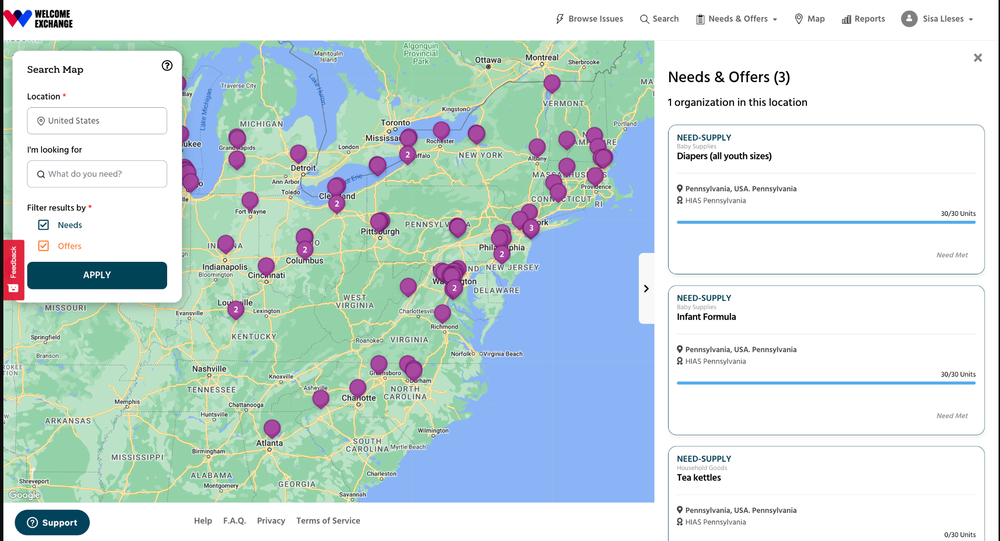My family has been seeking refuge for generations. During the Trujillo regime, my grandfather fled the Dominican Republic for Cuba with nothing but 20 pesos sewn into his pants. 30 years later they were forced to flee again. My eight year old father landed in Florida safely ahead of my grandparents, but a planned four month separation stretched to four and a half years due to the Cuban Missile Crisis.
The International Rescue Committee (IRC) helped reunify and resettle my family, as they have for so many others. I joined Google.org in 2019, and through Google’s philanthropic arm I’ve been lucky enough to work with organizations that support refugees, including the IRC, to support those who find themselves in situations like my parents and grandparents — having to leave their homes for the safety of their families. Since 2015, Google has not only given over $45 million to organizations supporting refugees through Google.org, it’s also provided support through our products and enabled Google employees to volunteer.
Connecting refugees with resources quickly
We’ve found that time is one of the most important factors in delivering effective humanitarian support. Between 60-80% of aid sector funding is spent on logistics alone. To help power faster humanitarian action, Google.org is announcing a $1 million grant to NeedsList along with a Google.org Fellowship. Through a free, public version of their crisis response software, NeedsList plans to move over $50 million of resources to local aid organizations, supporting 10 million people.
NeedsList is also operating Welcome.US’ Welcome Exchange to help those arriving from Afghanistan and Ukraine with housing, employment, and technology resources. Welcome.US has brought togethera coalition of over 35 CEOs, co-chaired by our CEO Sundar Pichai, to scale private sector support for those seeking refuge. As part of our participation in the Welcome.US CEO Council, Google has contributed $1 million in grant funding, $1 million in donated search ads, and 30,000 Pixel phones to Welcome.US.

Google.org has also supported Signpost, a platform which provides information on critical services like legal rights, accommodation, transportation and medical care, since the 2015 civil war in Syria and through the Venezualean refugee crisis in 2019. This year, supported by 15 Google.org Fellows and additional grant funding, Signpost partnered with United for Ukraine to build out unitedforukraine.org — an effort to help displaced people find housing, legal aid and psychological support. This project, along with Google.org grantee Outright Action International’s Ukraine Emergency Fund for LGBTQ+ refugees, are providing meaningful support for those affected by the war in Ukraine.
Helping through our products, tools and spaces
Teams across Google have also created products and provided space and support to refugee populations over the years.
- Google Search and Maps provides information to identify border crossings and avoid trouble, including SOS Alerts and temporarily disabling some live features to help protect the safety of local communities.
- Google Translate helps refugees overcome language barriers through features like offline translation and camera mode.
- Google for Startups Campus in Warsaw opened its doors for local nonprofits to provide legal and psychological support to refugees and temporary office space for Ukrainian startups.
- YouTube is partnering with the UNHCR and Welcome.US to raise awareness about the scale of communities affected by refugee crises, from Syria to Venezuela to the Democratic Republic of Congo, and to support refugee resettlement around the world.
